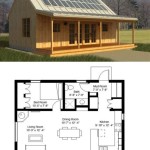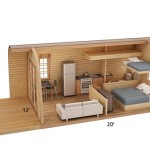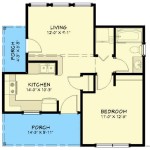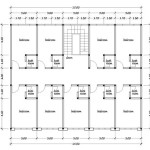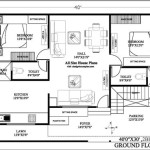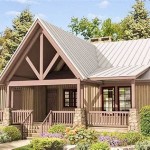Essential Aspects of Custom Home Building Plans
Embarking on a custom home building journey is an exciting adventure that requires careful planning and consideration. At the heart of this process lie the custom home building plans, which serve as the blueprint for your dream abode. These plans meticulously outline every aspect of your future home, ensuring that it aligns with your vision and practical needs.
### 1. Collaboration and CommunicationCustom home building plans are not merely technical documents; they are a collaborative effort between the homeowner, architect, and builder. Open and effective communication is crucial to translate your ideas and preferences into a tangible design. Your architect should listen attentively to your needs, asking clarifying questions to ensure they fully grasp your vision. This collaborative approach fosters trust and ensures that the plans align with your aspirations.
### 2. Site Assessment and Environmental ConsiderationsBefore penning any design details, a thorough site assessment is essential. This involves evaluating the topography, orientation, soil conditions, and surrounding environment. These factors will influence the placement, design, and sustainability of your home. Architects consider solar exposure, prevailing winds, and natural features to maximize energy efficiency and enhance the indoor-outdoor connection.
### 3. Floor Plan DesignThe floor plan is the foundation of your home's functionality and aesthetics. Architects work closely with homeowners to determine the optimal flow of traffic, placement of rooms, and allocation of space. Each room's purpose, size, and connection to other spaces are carefully considered. The floor plan should accommodate your lifestyle, family dynamics, and any specific requirements you may have.
### 4. Architectural Style and Exterior FeaturesCustom home building plans extend beyond the floor plan to encompass the exterior design and architectural style. Your architect will present you with options that align with your preferences and are appropriate for the surrounding environment. The architectural style influences the home's aesthetic appeal, curb appeal, and harmony with its surroundings. Rooflines, windows, doors, and exterior materials all contribute to the overall architectural character of your home.
### 5. Material Selection and Building SystemsCustom home building plans also specify the materials used for the construction and finishing of your home. Architects and builders will guide you through a wide range of options, including structural systems, roofing materials, siding, flooring, and interior finishes. The choice of materials impacts the durability, energy efficiency, cost, and aesthetic appeal of your home. Each material selection should be aligned with your design vision and practical considerations.
### 6. Mechanical, Electrical, and Plumbing SystemsThe backbone of any modern home is its mechanical, electrical, and plumbing (MEP) systems. Custom home building plans meticulously outline the design and installation of these essential systems. Architects and engineers collaborate to ensure that your home has efficient heating, cooling, ventilation, electrical wiring, plumbing fixtures, and drainage infrastructure. These systems are crucial for the comfort, safety, and overall functionality of your home.
### 7. Sustainability and Energy EfficiencyIn today's environmentally conscious world, sustainability is a paramount consideration in custom home building. Architects incorporate energy-efficient design principles, such as passive solar orientation, high-performance insulation, and energy-efficient appliances. These measures reduce the home's energy consumption, minimizing environmental impact and lowering utility bills over the long term.
### 8. Cost Estimation and Value EngineeringCost is an integral aspect of any construction project, and custom home building is no exception. Architects work closely with homeowners to establish a realistic budget and prioritize the most important elements of their design. Value engineering techniques are employed to optimize the cost-to-value ratio, ensuring that the home aligns with your financial goals without compromising on quality or functionality.
### 9. Permitting and ApprovalsOnce the custom home building plans are finalized, they must undergo the permitting process to obtain building permits from the local authorities. This process ensures that your plans comply with building codes, zoning regulations, and safety standards. Architects assist homeowners in navigating the permitting process, ensuring that the construction process proceeds smoothly and without delays.
### 10. Revisions and RefinementsEven the most meticulously designed plans may require revisions and refinements as the project progresses. Architects are flexible and responsive to changes in your needs or preferences. They work closely with you to incorporate necessary adjustments and ensure that the final design exceeds your expectations.

Custom Home Plans Milback Homes

Custom Home Plans And Where To Start Cnc Homes

Altaira House Plan Custom Home Plans Sater Design Collection

Easy Home Building Floor Plan Cad Pro

Sopris Homes Colorado Front Range Luxury Communities House Plans Dream Design

Custom House Plans Hagen Homes Kenosha County Wi

Standard Custom Home Floor Plans Creations Building

Small House Plans Popular Designs Layouts

Est House Plans To Build Simple With Style Blog Eplans Com

2 Story Home Plans Cool Custom House Design Affordable Two Flo Homes


